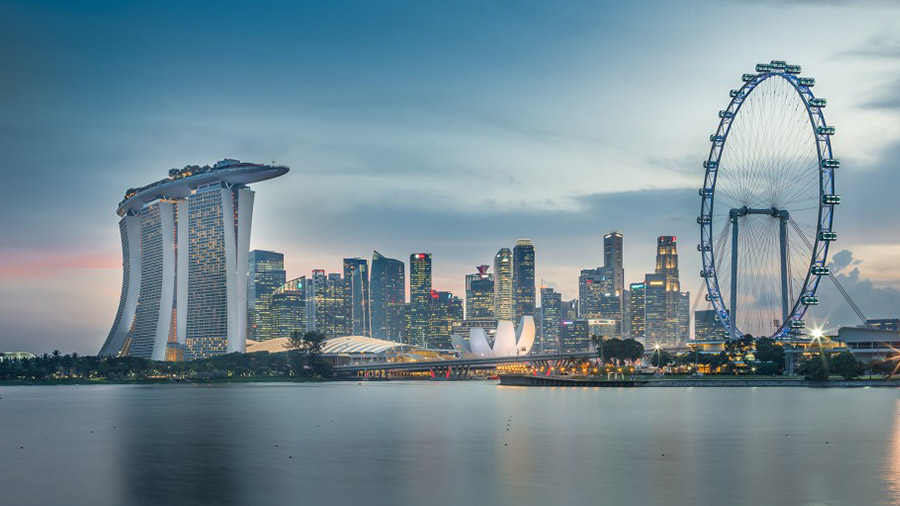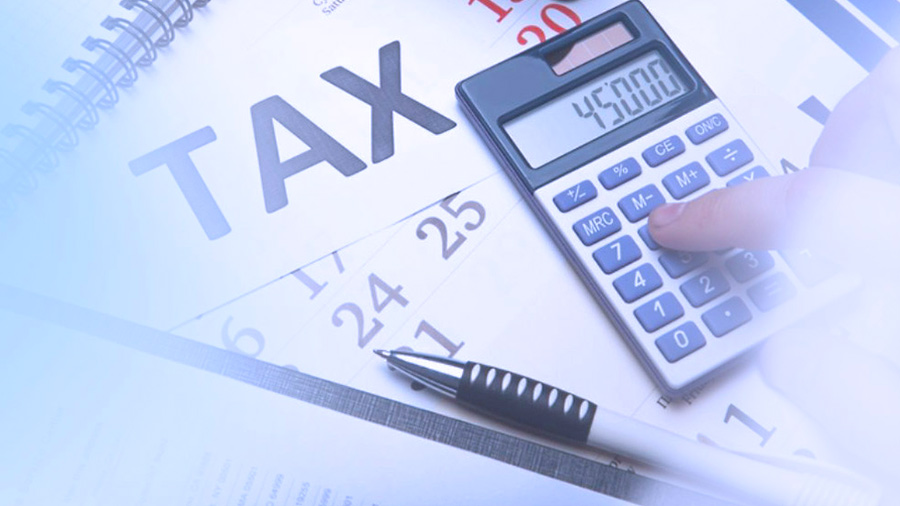Personal income tax is based on a progressive tax system, with taxes ranging from 0 to 22.5 percent for 2023.
For foreigners in Singapore, their tax liability is dependent on their tax residency status.
Foreigners are considered tax residences if they:
- Stay or work in Singapore for more than 183 days in a calendar year;
- A Singapore permanent resident who has a permanent home in Singapore; or,
- Continuously work in Singapore for three consecutive years.
Income tax rates in Singapore
Singapore levies a progressive individual income tax rate on tax residents, with the headline personal income tax rate currently at 22 percent. The progressive tax rates on chargeable income for tax residents are as follows:
IIT tax rates for residents 2023
|
IIT Tax Rates From YA 2017 to YA 2023 |
||
|
Chargeable Income |
Tax rate (%) |
Gross taxable |
|
First S$20,000 (US$14,830) |
0 |
S$0 |
|
Next S$10,000 (US$7,400) |
2 |
S$200 (US$148) |
|
First S$30,000 (US$22,247) |
- |
S$200 (US$148) |
|
Next S$10,000 (US$7,400) |
3.5 |
S$350 (US$259) |
|
First S$40,000 (US$29,508) |
- |
S$550 (US$407) |
|
Next S$40,000 (US$29,508) |
7 |
S$2,800 (US$2,076) |
|
First S$80,000 (US$59,016) |
- |
S$3,350 (US$2,484) |
|
Next S$40,000 (US$29,508) |
11.5 |
S$4,600 (US$3,411) |
|
First S$120,000 (US$88,524) |
- |
S$7,950 (US$5,895) |
|
Next S$40,000 (US$29,508) |
15 |
S$6,000 (US$4,426) |
|
First S$160,000 (US$119,076) |
- |
S$13,950 (US$10,258) |
|
Next S$40,000 (US$29,508) |
18 |
S$7,200 (US$5,311) |
|
First S$200,000 (US$118,033) |
- |
S$21,150 (US$15,602) |
|
Next S$40,000 (US$29,508) |
19 |
S$7,600 (US$5,607) |
|
First S$240,000 (US$177,049) |
- |
S$28,750 (US$21,209) |
|
Next S$40,000 (US$29,508) |
19.5 |
S$7,800 (US$5,754) |
|
First S$280,000 (US$206,557) |
- |
S$36,550 (US$26,963) |
|
Next S$40,000 (US$29,508) |
20 |
S$8,000 (US$5,902) |
|
First S$320,000 (US$236,065) |
- |
S$44,500 (US$32828) |
|
Excess S$320,000 (US$236,065) |
22 |
|
IIT rates for residents 2024 onwards
From 2024 onward, Singapore will increase the headline personal income tax rate to 24 percent. Chargeable income between S$500,000 (US$370,000) to S$1 million will be taxed at 23 percent, while chargeable income in excess of S$1 million (US$741,000) will be taxed at 24 percent.
|
IIT Tax Rates From YA 2024 Onward |
||
|
Chargeable Income |
Credit (%) |
Exemption |
|
First $20,000 (US$14,754) |
0 |
S$0 |
|
Next $10,000 (US$7,377) |
2 |
S$200 (US$147.5) |
|
First $30,000 (US$22,131) |
- |
S$200 (US$147.5) |
|
Next $10,000 (US$7,377) |
3.50 |
S$350 (US$258) |
|
First $40,000 (US$29,508) |
- |
S$550 (US$405.7) |
|
Next $40,000 (US$29,508) |
7 |
S$2,800 (US$2,065) |
|
First $80,000 (US$59,016) |
- |
S$3,350 (US$2,471) |
|
Next $40,000 (US$29,508) |
11.5 |
S$4,600 (US$3,393) |
|
First $120,000 (US$88,524) |
- |
S$7,950 (US$5,864) |
|
Next $40,000 (US$29,508) |
15 |
S$6,000 (US$4,426) |
|
First $160,000 (US$118,032) |
- |
S$13,950 (US$10,291) |
|
Next $40,000 (US$29,508) |
18 |
S$7,200 (US$5,311) |
|
First $200,000 (US$147,541) |
- |
S$21,150 (US$15,602) |
|
Next $40,000 (US$29,508) |
19 |
S$7,600 (US$5,607) |
|
First $240,000 (US$177,049) |
- |
S$28,750 (US$21,209) |
|
Next $40,000 (US$29,508) |
19.5 |
S$7,800 (US$5,754) |
|
First $280,000 (US$206,557) |
- |
S$36,550 (US$26,963) |
|
Next $40,000 (US$29,508) |
20 |
S$8,000 (US$5902) |
|
First $320,000 (US$236,065) |
- |
S$44,550 (US$32,865) |
|
Next $180,000 (US$132787) |
22 |
S$39,600 (US$29,213) |
|
First $500,000 (US$368,852) |
- |
S$84,150 (US$62,078) |
|
Next $500,000 (US$368,852) |
23 |
S$115,000 (US$84,836) |
|
First $1,000,000 (US$737,705) |
- |
S$199,150 (US$14,6914) |
|
In excess of $1,000,000 (US$737,705) |
24 |
|
|
Source: iras.gov.sg |
||
IIT tax rates for non-residents
Non-tax residents are taxed either at a flat rate of 15 percent or at the progressive tax rate detailed above, depending on which amount is higher. However, the fees and remuneration of non-resident directors and consultants are taxed at a flat rate of 22 percent.
Filing personal income tax returns
Each taxpayer in Singapore is obligated to make an annual return of income on a yearly basis. The tax return must be submitted by April 15. This can be done online or via mail.
The appropriate form to be filled out depends on the individual’s tax residency status:
- Tax resident individuals need to file Form B1.
- Self-employed individuals need to file Form B.
- Non-resident individuals need to file Form M.
Singapore’s IRAS can take legal action against individuals who do not file their tax returns or for non-payment of taxes.
Taxes on employer benefits
Benefits received from employers are taxable unless they are specifically exempt from income tax under an existing incentive.
Examples of benefits that are taxable include:
- Overtime payments;
- Motor vehicle provided by the employer;
- Subscription, entrance fees, memberships;
- Share options;
- Residential accommodation;
- Food and clothing;
- Allowances; and
- Medical reimbursements for dependents.
Tax exempt income
Certain types of income are specifically exempted from tax under the Income Tax Act 1947, subject to conditions. These include:
- Certain shipping income derived by a shipping company under Section 13A and Section 13E;
- Foreign-sourced dividends, branch profits and service income received by a resident company under Section 13(8); and
- Gains derived by a company on the disposal of equity investments under Section 13W.
- Capital gains tax: There is no capital gains tax in Singapore. The gains derived from the sale of a property/investment in Singapore are not subjected to tax as it is a capital gain. However, the gains may be taxable if one is the business of trading shares.
Tax residency: Resident vs. non-resident individuals
The tax liability of companies and individuals in Singapore is dependent on their tax residency status.
Singapore citizens and Singapore permanent residents are both considered tax residents. Foreigners are considered tax residents if they:
- Have stayed or worked in Singapore for (a) more than 183 days in a calendar year in the previous Year of Assessment (YA), or (b) continuously for three consecutive years; or
- Have worked in Singapore for a continuous period spanning two calendar years with the total duration of stay exceeding 183 days, including physical presence in Singapore before and after the start of work.
A professional is a non-resident if they are in Singapore for less than 183 days in a calendar year. Examples of foreign professionals include foreign experts or consultants invited to Singapore to share knowledge or expertise with an organization, an academic attending a seminar or workshop, or an individual operating via a foreign company.
Board directors, or company directors, are non-residents if they spend less than 183 in a calendar year in Singapore. A board director may also hold another role within a company, such as a chief executive officer or managing director, but they are only considered a board director for income derived in that role.
Tax treatment of income earned overseas
Overseas income received in Singapore is not taxable and need not be declared in your Income Tax Return. This includes overseas income paid into a Singapore bank account.
Overseas income is taxable in Singapore if:
- It is received through partnershipsin Singapore;
- The overseas employment is incidental to your Singapore employment (i.e. you are required to travel overseas as part of your job requirements);
- You have a trade/business in Singapore, and you are carrying on a trade/business overseas which is incidental to your trade carried out in Singapore; and
- You are employed overseas on behalf of the Singapore Government.
Reporting overseas income
For overseas income which is taxable, one must declare the income under 'Employment Income' (if the employer is not under the Auto-Inclusion Scheme), 'Trade Income' or 'Other Income' (whichever is applicable) in the Income Tax Return.
If the gains from the overseas employment be taxed in the foreign country/region, you may apply for double taxation relief, to avoid being taxed twice on the same income.
FAQ: Individual Income Tax in Singapore
How much is the personal income tax rate in Singapore?
Singapore levies a progressive individual income tax (IIT) rate on tax residents, with the headline IIT rate currently at 22 percent.
From 2024 onward, Singapore will increase the headline IIT rate to 24 percent. Chargeable income between S$500,000 (US$368,738) to S$1 million will be taxed at 23 percent, while chargeable income in excess of S$1 million (US$737,476) will be taxed at 24 percent.
How is tax recidency in Singapore defined?
Singapore citizens and Singapore permanent residents are both considered tax residents. Foreigners are considered tax residents if they:
- Have stayed or worked in Singapore for (a) more than 183 days in a calendar year in the previous Year of Assessment (YA), or (b) continuously for three consecutive years; or
- Have worked in Singapore for a continuous period spanning two calendar years with the total duration of stay exceeding 183 days, including physical presence in Singapore before and after the start of work.
What is the due date for personal income tax filing in Singapore?
Singaporean individual income tax must be filed by April 15. Singapore follows a calendar year basis for personal taxes i.e., 12 consecutive months beginning from January 1 and ending December 31. Therefore, tax must be paid by April 15 for the previous calendar year.
What income is taxable in Singapore for individuals?
All income earned in or derived from Singapore is chargeable to income tax. Most overseas income received in Singapore is not taxable, except in certain cases such as if it is received through partnerships in Singapore or an individuals overseas employment is incidental to their Singapore employment.











